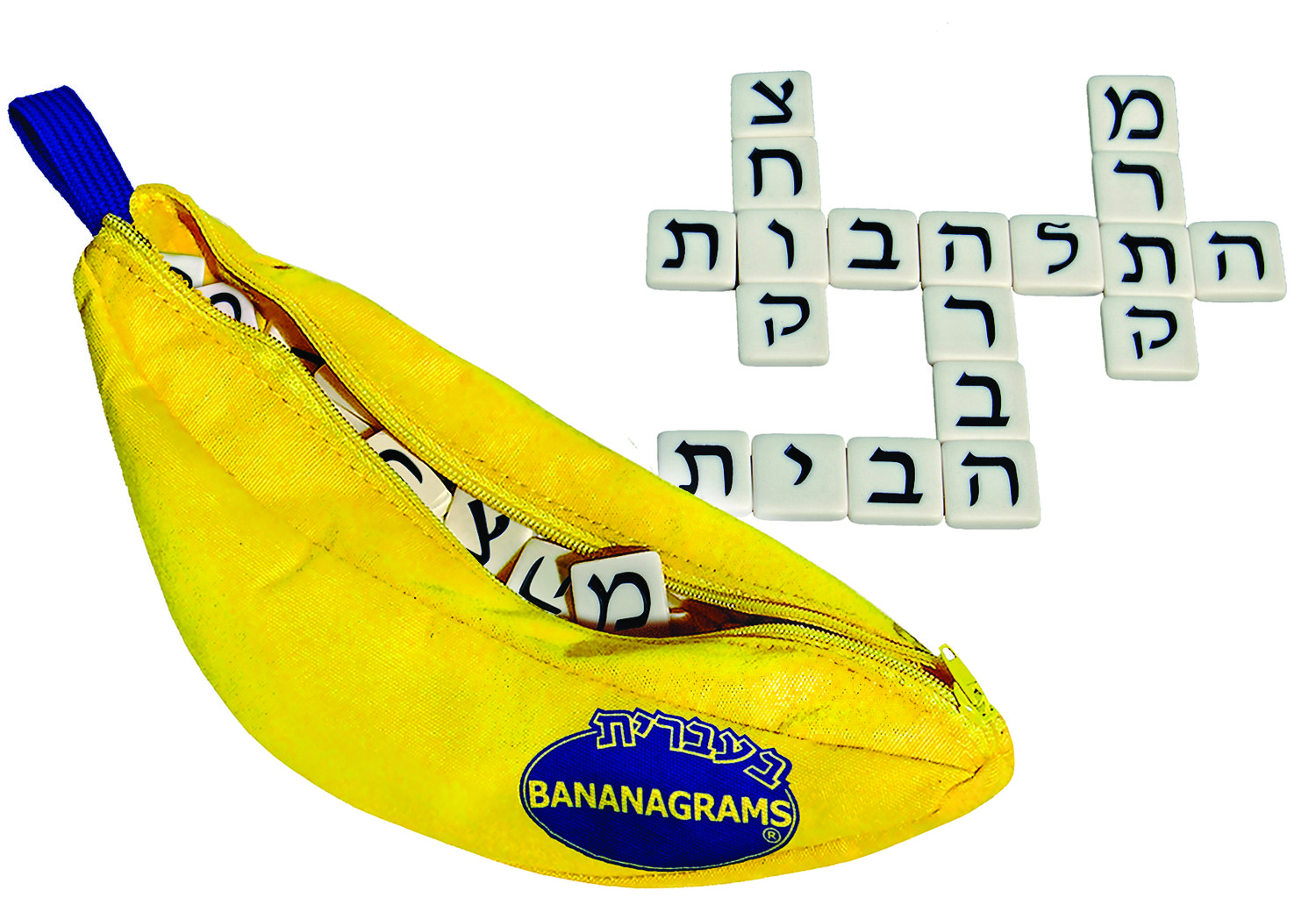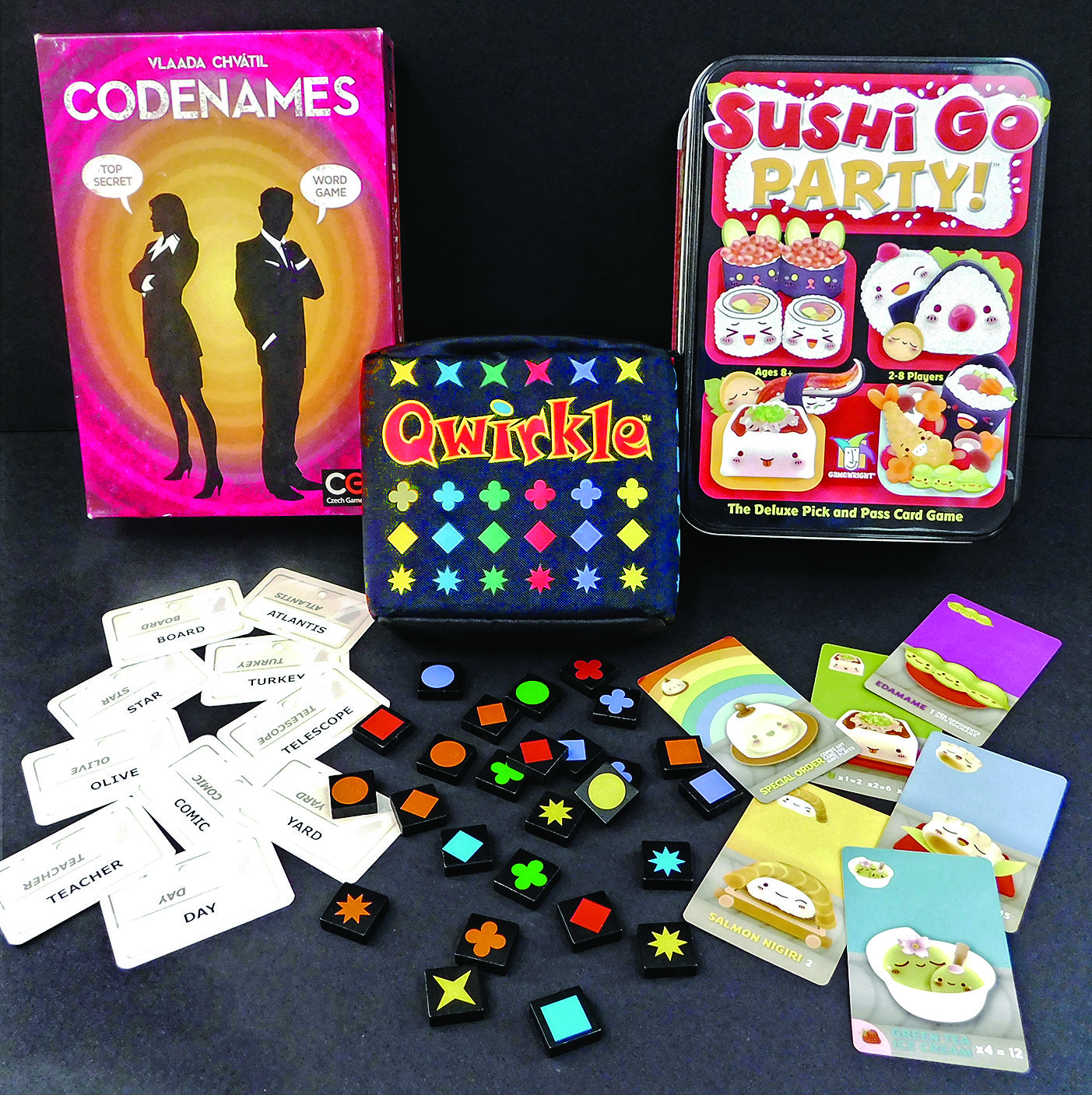Board games bring family together
Of all Jewish traditions, the Passover seder is perhaps the most family-oriented. As multiple generations gather around the table, each plays a special role.
Between telling the story, reciting the Four Questions, hiding the afikoman and opening the door for Elijah, everyone is involved. Such togetherness is wonderful, but rare. When else does a multigenerational family come together to all enjoy the same activity, at the same time?
The answer may lie in board games. Rena Nathanson, CEO of Providence-based Banangrams Inc. explains, “Table top games are ideal for family bonding time. They bring everyone together to connect face-to-face, unplug from electronics and make memories.” Modern games are designed to keep everyone playing until the very end, which keeps players engaged and is a pleasant contrast to the “last man standing” aspect of many classic games.
Here are some recommendations to help your family spend even more quality time together. These games can be purchased at local toy and game shops, or online, for around $20; many allow for children as young as 6 to play on his or her own or as part of a team. Happy gaming!
• Forbidden Island requires 1-4 players to recover four lost treasures before the island underneath them sinks into the ocean. The game is cooperative, so the players all win or lose as a team. Published by Gamewright.
• Sushi Go Party! is a light, clever game for 2-8 players. Each player selects one card from his or her hand, then passes the rest to a neighbor; whoever has the tastiest dinner at the end of three rounds is the winner! You can choose which cards you play with, so no two games ever have to be the same. This game contains several cartoonish depictions of shellfish; we acknowledge that this may not be to everyone’s taste. Published by Gamewright.
• Codenames is a team-based game for any number of players. Each team must find all of its secret agents (represented by words printed on cards) before its opponents can do the same, but the game’s unique clue-giving mechanism keeps things interesting. Codenames was the winner of the 2016 Spiel des Jahres, which is gaming’s highest honor. Published by Czech Games Edition.
• Qwirkle is similar to Scrabble, but it uses colors and shapes instead of letters so it’s much friendlier to family members of all ages. It accommodates 2-4 players and is published by MindWare.
• Wits & Wagers Family is a trivia game where players don’t actually need to know the answers. Not confident in your answer? Place your wager on someone else’s response and try to be the first to collect 15 points! Published by NorthStar Games, Wits & Wagers accommodates up to 10 players and involves no actual gambling.
• Spot It! is a fast and hilarious pattern-recognition game with multiple ways to play. Each card in the deck of 55 shows a variety of symbols, but no two cards share more than a single symbol. Can you find the match before everyone else? There’s even a “Shalom” version, whose symbols include bagels, dreidels and seder plates. Published by Blue Orange Games, Spot It! accommodates up to 8 players.
• Bananagrams was designed by the local father/daughter team of Abe and Rena Nathanson. Its gameplay involves placing tiles in a race to be the first to create an individual “crossword.” The game supports 2-8 players, and since a hand can be played in as little as five minutes, it’s quick and easy to rotate players in and out. Bananagrams is available in Hebrew and English versions, and is recommended for players as young as 7.
MICHAEL SCHEMAILLE (mschemaille@jewishallianceri.org) writes for Jewish Rhode Island and the Jewish Alliance of Greater Rhode Island. He has been playing games for as long as he can remember.












